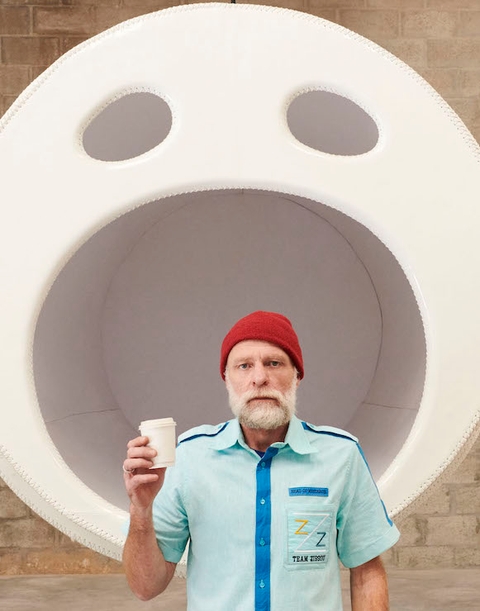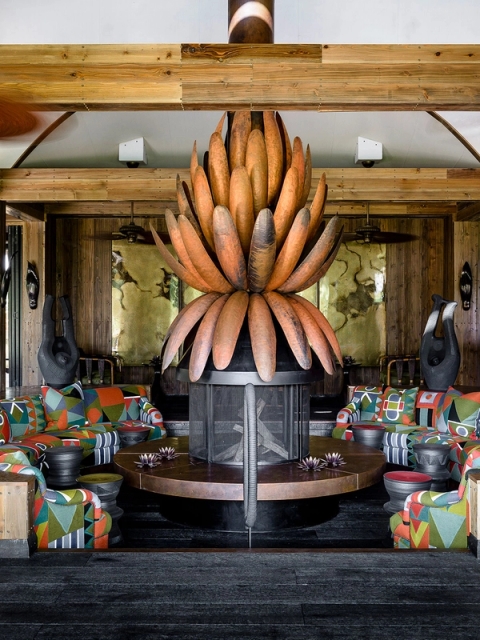My Enquiry (0)
No artwork has been selected.
Please choose an artwork to enquire.
Enquiry Submitted
Thank you for your enquiry and interest in our artists’ work. A member of the gallery team will respond shortly.
000%

Watch: Making of Porky Hefer’s ‘Plastocene’
15 Nov 2020 (2 min) read
"I start with a negative and turn it into a positive."
Produced by Southern Guild, this video goes behind the scenes to show the making of Plastocene – Marine Mutants From a Disposable World, a major new collection by South African artist Porky Hefer, which made its world premiere at the NGV Triennial 2020 at NGV International (National Gallery of Victoria) in Melbourne, Australia on 19 December. The collection of large-scale handmade seating environments draws attention to ocean pollution by imagining mutant sea creatures evolved from plastic bags, straws, and coffee cups.
Plastocene comprises five works: Buttpuss, a 14m wide x 3.6m high octopus constructed from giant hand-felted cigarette butts; Q-Tip, evolved from a cotton bud and drawing reference from a hammerhead shark; Suckerfish, studded with 120 giant crocheted straws; Flat White, based on a disposable coffee cup; and Sabre Toothed Netfeesh, woven from off-cut marine rope.
Hefer’s design process is rooted in collaboration, drawing on the skills and knowledge of the artisan groups around him. For this collection he conducted the hands of more than 80 crafters across six studios: Ronel Jordaan Textiles, Streetwires, Mielie, Wolf & Maiden Creative Studio, M Clothing and Leon at CXIXX, with African Karakul wool sponsored by Jonay Wool Carding. The entire project was co-produced by Southern Guild and will form part of NGV’s permanent collection.
Marking the end of the Anthropocene, our current fossil-fuelled epoch, Hefer’s creatures remind us of plastic bags, straws, coffee cups, trash, and the discarded detritus of hyper-consumerism, convenience and environmental neglect. He speculates that in a distant future some species might transmutate, adapting to the endless abundance of plastics and pollutants flooded into nature. In a twist of evolutionary fate, Hefer imagines what would happen if refined hydrocarbon distillates from fossil fuels fused with organic DNA to generate a new type of life – transitional forms that exemplify the mutant fruits of our fossil-fuel era. The toxic future painted here is one that humans would struggle to inhabit. But at best, Hefer hopes that life continues in this new form, following the mass extinction that he sees us so selfishly perpetuating.
Plastocene is one of 30 major new world-premiere works commissioned by the NGV for the NGV Triennial. Featuring 87 projects by more than 100 artists, designers and collectives from 33 countries, the exhibition runs at NGV International in Melbourne from 19 December 2020 to 18 April 2021. Comprising an ambitious and diverse selection of works showcasing the vanguard of contemporary practice, the exhibition offers a visually arresting and thought-provoking view of the world at this unique moment.

